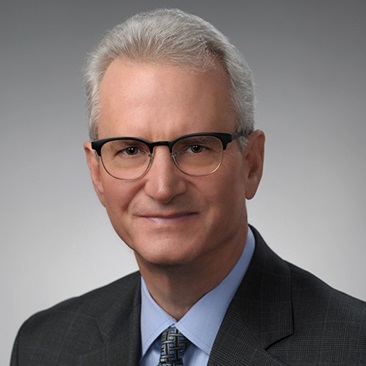full-time faculty teaching and conducting research in political science
of Maxwell faculty conduct research focused outside of the U.S.
graduate students in residence; fewer than 12 admitted each year
Undergraduate Studies
Graduate Studies

I am Maxwell.
Civic engagement is a core value for me. I have always aspired to help the communities I’m from.” Mazaher Kaila, a Maxwell alumna and third-year student at Syracuse University's College of Law, moved with her family from Sudan to Central New York when she was four years old. “I realized that to make meaningful change in society, I needed to understand the systems that power it—government and politics—and that’s insight I would gain by studying political science.”
Mazaher Kaila ’19, L’22
political science, law
The Invented State: Policy Misperceptions in the American Public
Emily Thorson
Oxford University Press, January 2024

Emily Thorson, assistant professor of political science, recently published “The Invented State: Policy Misperceptions in the American Public” (Oxford University Press, 2024).
Thorson identifies factors that contribute to widespread misperceptions among the public about how government policy works. Using interviews, panel surveys, experiments and analyses of news coverage, she argues that the media’s failure to provide information about current policy, as well as people’s attempts to make sense of the complex political world, can lead to false or distorted opinions that impede citizen competence. Correcting misperceptions of existing policy, she argues, reduces false beliefs and can change support for policies such as Social Security, refugee policy and assistance to low-income families.
Thorson’s research focuses on how information (and misinformation) spreads through both traditional and social media. She co-edited “Misinformation and Mass Audiences” (University of Texas Press, 2018).
Thorson is a senior research associate in the Campbell Public Affairs Institute. Her areas of expertise are in American politics and media, misinformation and misperceptions, experimental methodology, and political psychology. She teaches classes on surveys and experiments, public opinion and electoral behavior, and politics and media. She received a Ph.D. from the University of Pennsylvania in 2013.
From the publisher:
“In The Invented State, Emily Thorson argues that a problematic and understudied aspect of political misinformation reflects widespread public misperception about what the government does. Because much of public policy is invisible to the public, there is fertile ground for false beliefs to flourish, leading to the creation of what Thorson terms the "invented state": systematic misperceptions about public policy. However, people get the facts wrong not because they are lazy, stupid, or blinded by partisan loyalty. Rather, misperceptions are created when three conditions are met: when citizens have incomplete information about an issue, when their own biases color their understanding of it, and when they feel that the issue is important. In other words, the invented state is created not just by exposure to explicit misinformation, but also by individuals' cognitive errors.
Correcting these policy misperceptions is highly effective at reducing false beliefs. In addition, providing people with corrective information has downstream effects on attitudes. When they learn how policies - including Social Security, refugee policy, and the Temporary Assistance for Needy Families program - really work, their approval of these policies increases, and they also shift their policy priorities. Contrary to pundits' assumptions of a public who is largely indifferent to policy, there is a deep public desire to learn basic facts about how the government works. Thorson meets that desire with analysis on how the news media can identify and effectively correct substantive policy misperceptions. The Invented State not only sheds a new light on how Americans think about policy, but can also help to inform evidence-based interventions to improve democratic competence.”
Published in the Spring 2024 issue of the Maxwell Perspective
Related News
Commentary

Aug 1, 2024
Commentary

Jul 31, 2024
Commentary

Jul 30, 2024
BaoBao Zhang Joins First Cohort of AI2050 Early Career Fellows
One of only 15 scholars chosen from across the U.S., Zhang will receive up to $200,000 in research funding over the next two years. Zhang will use the funding to partner with the nonprofit, non-partisan Center for New Democratic Processes to test whether public participation in AI governance is increased through the creation of public assemblies, known as “deliberative democracy workshops.”
Baobao Zhang
Assistant Professor, Political Science Department

The Invented State: Policy Misperceptions in the American Public
Emily Thorson
Oxford University Press, January 2024

Emily Thorson, assistant professor of political science, recently published “The Invented State: Policy Misperceptions in the American Public” (Oxford University Press, 2024).
Thorson identifies factors that contribute to widespread misperceptions among the public about how government policy works. Using interviews, panel surveys, experiments and analyses of news coverage, she argues that the media’s failure to provide information about current policy, as well as people’s attempts to make sense of the complex political world, can lead to false or distorted opinions that impede citizen competence. Correcting misperceptions of existing policy, she argues, reduces false beliefs and can change support for policies such as Social Security, refugee policy and assistance to low-income families.
Thorson’s research focuses on how information (and misinformation) spreads through both traditional and social media. She co-edited “Misinformation and Mass Audiences” (University of Texas Press, 2018).
Thorson is a senior research associate in the Campbell Public Affairs Institute. Her areas of expertise are in American politics and media, misinformation and misperceptions, experimental methodology, and political psychology. She teaches classes on surveys and experiments, public opinion and electoral behavior, and politics and media. She received a Ph.D. from the University of Pennsylvania in 2013.
From the publisher:
“In The Invented State, Emily Thorson argues that a problematic and understudied aspect of political misinformation reflects widespread public misperception about what the government does. Because much of public policy is invisible to the public, there is fertile ground for false beliefs to flourish, leading to the creation of what Thorson terms the "invented state": systematic misperceptions about public policy. However, people get the facts wrong not because they are lazy, stupid, or blinded by partisan loyalty. Rather, misperceptions are created when three conditions are met: when citizens have incomplete information about an issue, when their own biases color their understanding of it, and when they feel that the issue is important. In other words, the invented state is created not just by exposure to explicit misinformation, but also by individuals' cognitive errors.
Correcting these policy misperceptions is highly effective at reducing false beliefs. In addition, providing people with corrective information has downstream effects on attitudes. When they learn how policies - including Social Security, refugee policy, and the Temporary Assistance for Needy Families program - really work, their approval of these policies increases, and they also shift their policy priorities. Contrary to pundits' assumptions of a public who is largely indifferent to policy, there is a deep public desire to learn basic facts about how the government works. Thorson meets that desire with analysis on how the news media can identify and effectively correct substantive policy misperceptions. The Invented State not only sheds a new light on how Americans think about policy, but can also help to inform evidence-based interventions to improve democratic competence.”
Published in the Spring 2024 issue of the Maxwell Perspective
Related News
Commentary

Aug 1, 2024
Commentary

Jul 31, 2024
Commentary

Jul 30, 2024
